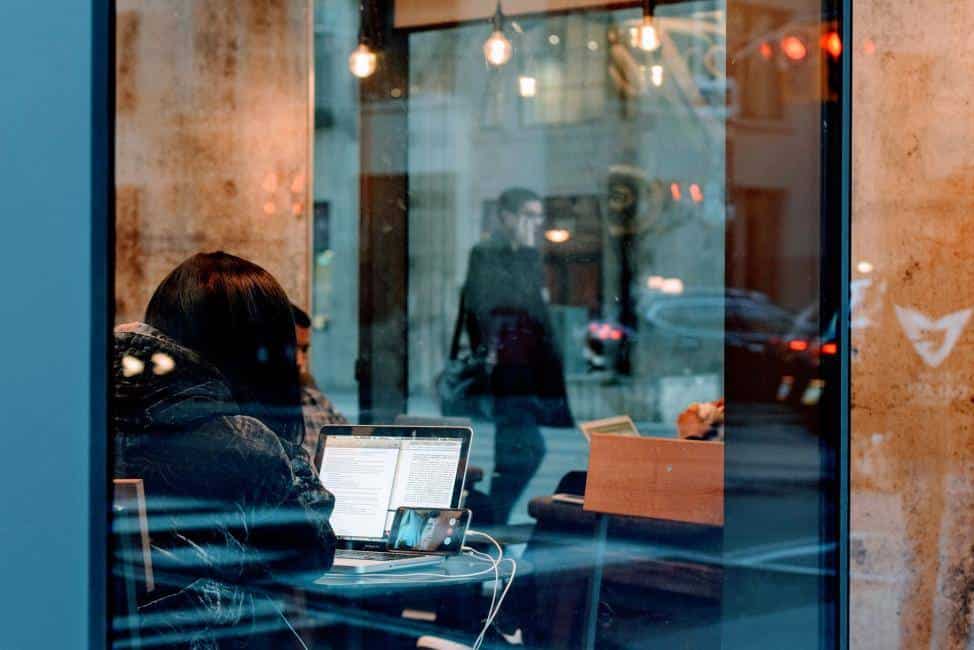Gone are the days where vacation time means logging off at work and shutting off communication with the outside world while you take some time off.
With the internet being so easy to access while traveling (in most locations), most of us remain in constant communication no matter where we are in the world. Whether on a business trip, vacation or traveling long term, you’ll no doubt be needing to access the internet while traveling – be it to check a few emails, post on social media, book flights and accommodation, or watch TV abroad.
It’s important to be aware of your safety online. There are many risks when using the internet, and especially when using the internet from a remote location in a foreign country. Rather than your password-protected home or work network, you’re often using public or semipublic Wi-Fi (airports, train stations, cafes, and hotels all fall into this category) or, possibly the worst, shared computers. Which is why it’s a good idea to use a VPN (Virtual Private Network) while traveling.
If you’re not sure yet why you need to use a VPN for travel, we’ve got all the information that you need to know.
Travel Dudes recommends ExpressVPN for international travel. Sign up here (and get 3 months free)!

What is a VPN?
A VPN is a service you buy. It provides:
- Private and secure access to the Internet.
- Encrypts all your online data so that no one can grab your communication from the air waves. A VPN protects you from other users stealing your data, like usernames, passwords, credit card numbers, browser cookies, and other identifying information.
- Allows travelers to access the Internet as if they were in their own country – including other countries you want to appear to be in.
Important Reasons Why You Should Use a VPN for Travel
We highly recommend using a VPN for travel, here’s why:
1. Safety and Security features
To protect their citizens, many governments, including the US and Canada, have published safety precautions about using public WiFi. Logging in to free public Wi-Fi can open you up to hackers being able to access your information. If you don’t need to add a log-in name and a password to connect to the Wi-Fi, this means that it’s unsecured. Your personal data and passwords will be open for theft – including emails sent, banking information, credit card details, and login passwords used. If you’re using a VPN, however, all of your data will be encrypted – making it useless to any hacker.
2. Access blocked websites
Some countries block certain websites, like Facebook, YouTube and online news outlets due to government censoring. This is particularly prevalent in Asian countries, including China, Burma, Vietnam, and Thailand. You can use a VPN to select a country where the website is available, and you’ll then be able to access the website with ease.
Another example of this is Voice over Protocol services (like Skype, Facetime and Whatsapp) being block in the United Arab Emirates and Qatar. When in these regions, users need to make use of a VPN to access VoP services.
3. Watch TV while traveling
For those rainy days or sleepless jet-lagged nights, we all love logging onto our favourite streaming services and watching a movie or binge-watching the latest series. Though, you’ll be upset to find out that many services are only available in particular countries, like Hulu, BBC, or Starz Play. And while services like Netflix and Amazon Prime are now available in almost all countries across the world, the catalogue is different in each country, meaning you might not be able to access your current series binge. This is where a VPN comes in handy. You can set your ‘end-point’ as your home country and then be able to access the service as if you were at home.
Watch Netflix Abroad with a VPN
In 2016 Netflix cracked down on VPN’s after their global launch. Netflix has since been able to stop loads of VPN’s from allowing users to use their service, though there are still a handful of VPN’s that work with Netflix.
The BestVPN recently did research into the best VPN’s for watching Netflix and found that ExpressVPN (click here to get 3 months free) is the best. This was followed by NordVPN, which currently has working Netflix servers in the United States, France, the UK, and the Netherlands.
Using a VPN to watch Netflix means that you can watch content that is not available in your current region either because it has expired, licensing fees, or is yet to be released.
4. Prevent frozen bank accounts
Having your bank account frozen while traveling overseas is a traveler’s worst nightmare. Being thousands of miles away from home and unable to access your money is most definitely not an ideal situation to be in. This is another reason why, if you’re going to be doing any online banking on your phone or laptop, to use a VPN while in a remote location. The reason for this is that if your bank notices that you’ve logged in from a foreign location, say the Philippines when you’re normally based in the UK, they may flag and freeze your account. You’ll then need to call your bank and rectify the situation.
Another way to avoid this is to also alert your bank of your travels before you leave, telling them the locations and dates that you are traveling.
5. Use a VPN for better travel deals
You may get better deals on flights or other travel activities when booking from another country. The algorithms on booking sites take your location into account when determining flight prices, so it’s worth trying out a few location options to see if you can get a better deal!
See also: How to Find Cheap Airline Tickets Using a VPN
What makes a good VPN for travel?
Here’s a VPN requirement checklist:
1. Avoid any Free VPN
Your connection is secure from your computer until it reaches the VPN provider’s computers. At that point they can log your activity, copy your data, do what ever they want before sending it on to the internet.
2. Choose a reputable company
In consideration of point #1, I highly recommend you choose a reputable company to protect your privacy. ExpressVPN is one such British Virgin Islands based company that has been in business since 1995. Whichever provider you choose, check user reviews and choose with your privacy in mind, not the monthly cost.
3. 128bit Encryption
Most smartphones and tablets will need a type of VPN connection called PPTP and a good VPN provider will also offer a connection type called L2TP which is also compatible. For the best privacy protection, you want these to have 128bit Encryption. If it’s not listed on their website, ask them if they offer it. If they don’t, choose a different provider.
4. Free trial
Make sure they offer you at least a 7-day no-risk money back guarantee. All of the VPN providers will make you purchase their service to get the maximum speed they offer. This is worth it since connecting to a VPN will slow down your internet somewhat. You’ll find that some of them can be pretty slow during certain times of the day, so you may want to request a refund if it makes your internet connection too slow. Both NordVPN and ExpressVPN gives you a free 7-day trial, and 30-day money back guarantee.
5. Large choice of countries
Pick a VPN provider that gives you choices of which country the connection is in. Most offer US, Canada, UK and Netherlands, with multiple cities to choose from. Communications will be secured from your computer, tablet or smartphone until they reach that country. After that, it’s completely open as it continues its journey through the internet. Data you send could be logged by VPN providers and would be subject to the privacy laws of the country you connect to.
6. Price
The price for a good, secure provider should be between $9-12 per month for PPTP type VPN service, but let reputation and features be your guide, not the price difference between a Tall and Venti Latte.
What is the best VPN for traveling?
There are several different VPN’s out there, both free and paid. For the best service it’s better to make use of a paid one. An example is ExpressVPN which has a seven-day free trial (plus 30-day money back guarantee), with 3,000+ VPN servers in 160 VPN server locations in 94 countries.
How to use a VPN while traveling
Using a VPN is quite simple. You simply sign up on their website and download and install the VPN for your phone, tablet, or laptop. You then open the app after you’ve connected to the internet and choose a server that you’d like to use, you’ll have a few options to choose from (Tip: use a nearby location for better speeds if you don’t need a particular end-point). After a few seconds you’ll be connected to the server and all of your data will be encrypted and passed through the virtual network.
If you’re traveling to a location with really slow Wi-Fi then you may have issues with connecting to a VPN. You may not be able to connect at all, or it could just be really slow resulting in all of the frustrations that come with slow internet. If the Wi-Fi isn’t good enough then just avoid doing anything online with your personal or financial information. If the Wi-Fi keeps dropping, then also keep checking that you are still connected to the VPN. It may disconnect you each time that the Wi-Fi drops. Some VPN’s have an auto-connect feature, which is a good idea to turn on while traveling as you may keep forgetting to turn the VPN on.
Do I need a VPN for travel?
A good VPN is an indispensable part of any traveler’s digital tool kit. It’s a cheap way to take the necessary precautions to protect yourself online. Using a VPN for travel will help you in so many ways – it’s always worth signing up with a reputable service.




